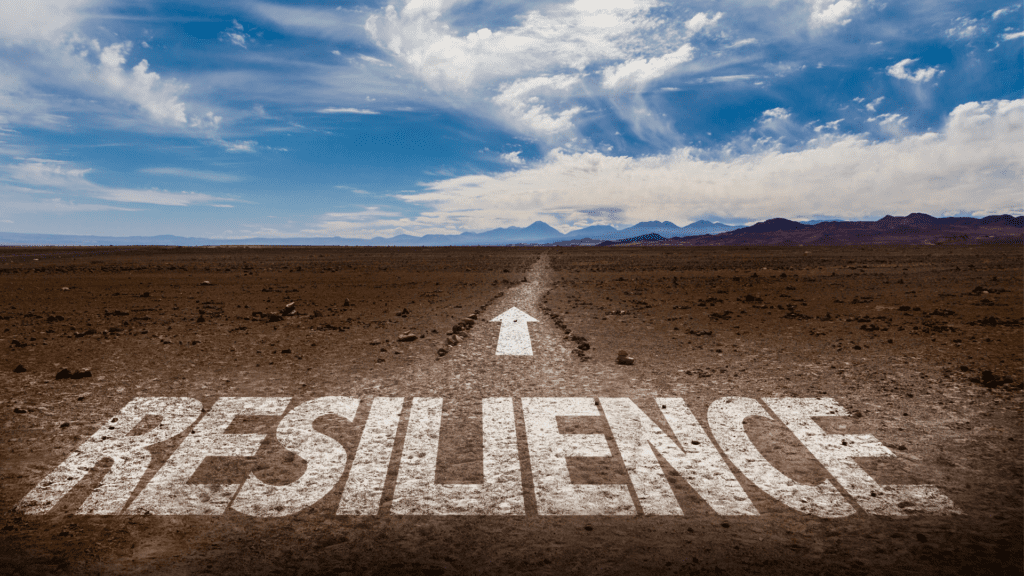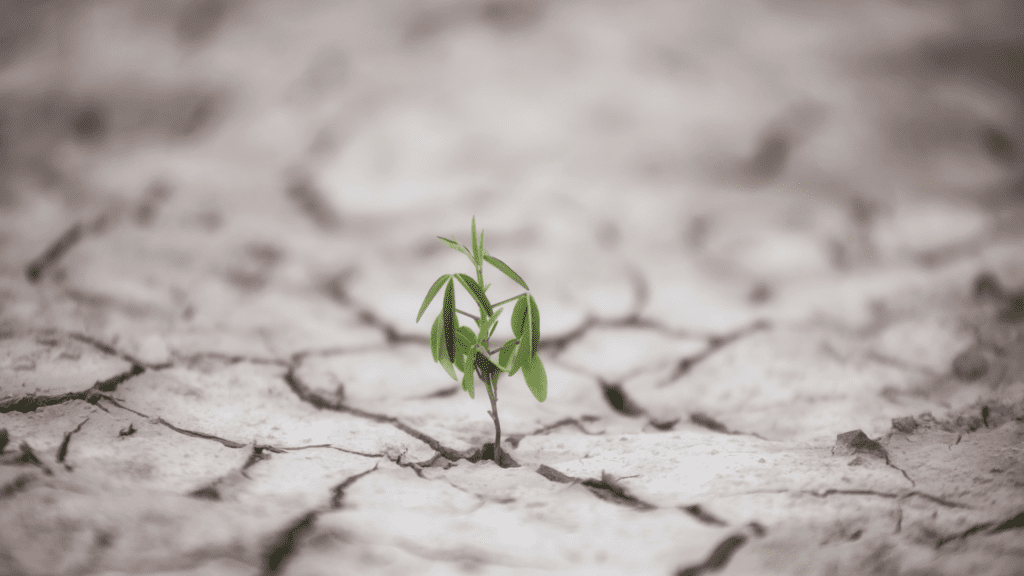Opening Thoughts
Life is a complex journey filled with challenges and triumphs. Psychological resilience, the ability to adapt and thrive in the face of adversity, plays a pivotal role in navigating life’s inevitable fluctuations. By fostering resilience, we can view life’s “ups and downs” not as insurmountable obstacles but as opportunities for growth and self-discovery.
Embrace Uncertainty Without Seeking Reasons for Unhappiness
Modern psychology and neuroscience suggests that the quest for happiness is not about uncovering the reasons for our discontent but about building emotional resilience and a positive mindset. By focusing on inner peace and cultivating a serene mind, we empower ourselves to face life’s challenges with grace. Mindfulness techniques, such as meditation and deep-breathing exercises, can center your being and enhance inner peace. These practices help in reducing stress and promoting a balanced emotional state, which is crucial for resilience.
Self-Compassion: Be Kind to Yourself
Psychological research underscores the importance of self-compassion during difficult times. Approaching ourselves with kindness and understanding fosters emotional recovery and prevents negative self-judgment. Self-compassion involves recognizing our shared humanity, being mindful of our suffering, and extending to ourselves the same kindness we would offer a friend. This approach not only aids in emotional recovery but also builds a foundation for long-term psychological resilience.
Fear as an Illusion: Overcoming Psychological Barriers
Fear often stems from cognitive distortions—irrational thoughts that cloud our judgment and perception. Recognizing fear as a psychological construct rather than a reality can liberate us from its grip, allowing us to live more fully. Cognitive Behavioral Therapy (CBT) techniques can be particularly effective in addressing these distortions. By challenging and reframing negative thoughts, we can diminish the power of fear and build a more resilient mindset.
Power and Responsibility: Moving Beyond Blame
Psychology and the latest findings in neuroscience teach us that blaming external forces for our challenges disempowers us, trapping us in a victim mentality. By taking responsibility for our reactions and emotions, we reclaim our power and agency. This shift from blame to empowerment involves recognizing our ability to influence our circumstances and responses. It encourages proactive problem-solving and fosters a sense of control, which is essential for resilience.

The Transformative Power of Pain
Painful experiences often bring to light the areas within us that require mending and love. Psychological restoration involves confronting these painful parts, offering them the compassion and care they need. This process can be facilitated through various therapeutic practices, such as journaling, neuroscience based life coaching, and guided support groups. By addressing and integrating our pain, we can transform it into a source of strength and resilience.
Making Peace with Your Past
From a psychological standpoint, unresolved past conflicts can cast a long shadow over our present experiences. Forgiveness and acceptance are key to mending past wounds, allowing us to move forward unburdened by previous hurts. This process involves acknowledging the pain, understanding its impact, and choosing to let go of resentment. By making peace with our past, we free ourselves to fully engage with the present and future.
Inner Guidance: Trusting Your Sacred Self
Psychology and spirituality intersect in the concept of the inner self—a source of wisdom and peace within us. By tuning into our inner guidance, we can navigate life’s challenges with a sense of calm and purpose. Practices such as meditation, introspection, and mindfulness can help us connect with this inner wisdom. Trusting our inner guidance fosters resilience by providing a stable foundation from which to face adversity.
Faith Over Sight: The Psychological Benefits of Belief
Belief in something greater than ourselves, whether spiritual or a deeply held conviction, provides a psychological anchor in tumultuous times. This faith can guide us through darkness, offering hope and resilience. Research has shown that individuals with strong spiritual or religious beliefs often exhibit greater resilience in the face of adversity. This is because such beliefs provide a sense of meaning, purpose, and community support.
This Too Shall Pass: A Reminder of Impermanence
The psychological concept of impermanence reminds us that all experiences, whether joyous or painful, are transient. Embracing this reality can reduce suffering and increase our appreciation for the present moment. Mindfulness practices, which emphasize living in the present, can help us internalize this understanding. By accepting the impermanent nature of life, we can navigate challenges with greater equanimity and resilience.
Proven Strategies for Enhancing Psychological Resilience
Building on these principles, let’s explore some concrete strategies that can significantly boost your psychological resilience:
1. Cultivate Optimism and Face Your Fears
Optimism is a cornerstone of resilience. By maintaining a hopeful attitude while acknowledging challenges, you can navigate difficult situations more effectively. However, optimism alone isn’t enough. Facing your fears is equally important. Neuroscience shows that confronting what scares you reduces its power over you. By combining optimism with the courage to face fears, you create a powerful foundation for resilience.
2. Embrace a Moral Compass and Practice Spirituality
Having a strong sense of right and wrong provides direction during turbulent times. This moral compass, coupled with spiritual practices (religious or secular), can offer comfort and purpose. Whether it’s through meditation, prayer, or participation in a community that shares your values, spirituality can be a significant source of resilience.
3. Build Social Support and Learn from Role Models
Strong social connections are vital for resilience. Cultivate relationships with family, friends, and community members who can offer support during challenging times. Additionally, seek out resilient role models. Observing how others navigate adversity can provide valuable insights and inspiration for your own journey.
4. Maintain Physical and Mental Fitness
Physical health significantly impacts emotional resilience. Regular exercise helps your body and mind adapt to stress more effectively. Similarly, keeping your brain active through lifelong learning enhances cognitive flexibility, a key component of resilience. Engage in activities that challenge you intellectually and physically to build a robust foundation for resilience.
5. Develop a Growth Mindset and Accept Imperfection
A growth mindset—the belief that abilities can be developed through effort—is crucial for resilience. It allows you to view challenges as opportunities for growth rather than insurmountable obstacles. Coupled with this, accepting imperfection enables you to adapt more flexibly to life’s inevitable setbacks without being derailed by unrealistic expectations.

Advanced Techniques for Mastering Psychological Resilience
As you progress in your journey towards greater resilience, consider incorporating these advanced techniques into your practice:
1. Emotional Regulation and Boundary Setting
Mastering emotional regulation is a hallmark of resilience. This doesn’t mean suppressing emotions, but rather directing them appropriately. Practice redirecting your feelings in constructive ways, especially during stressful situations. Additionally, setting clear boundaries on your time and energy is crucial. Learning to say “no” when necessary preserves your resources for what truly matters, enhancing your overall resilience.
2. Self-Compassion and Mindfulness Meditation
Self-compassion—extending to yourself the same kindness you’d offer a friend—is a powerful tool for building resilience. It involves acknowledging your suffering without judgment and recognizing your shared humanity. Combine this with mindfulness meditation to enhance your self-awareness and emotional balance. Regular meditation practice can significantly improve your ability to cope with adversity and maintain a centered perspective.
3. Finding Meaning and Purpose
Resilient individuals often view their work and life experiences as part of a larger purpose. This perspective can provide motivation and strength during challenging times. Reflect on your values and how your actions align with them. Seek ways to infuse your daily activities with a sense of meaning, whether through your career, relationships, or personal projects.
4. Continuous Learning and Adaptation
Resilience is not a static trait but a dynamic process of continuous growth and adaptation. Regularly challenge yourself to learn new skills, explore different perspectives, and step out of your comfort zone. This ongoing process of learning and adaptation strengthens your ability to navigate unfamiliar and challenging situations with confidence.
5. Integrative Approach to Well-being
Recognize that psychological resilience is interconnected with all aspects of your well-being. Adopt an integrative approach that addresses physical health, emotional balance, social connections, and spiritual or existential needs. This holistic perspective ensures that you’re building resilience across all dimensions of your life, creating a robust and flexible foundation for facing life’s challenges.
FINAL REFLECTIONS
Building psychological resilience is a dynamic and ongoing process. It involves developing a positive mindset, practicing self-compassion, overcoming fear, taking responsibility, recovering from pain, making peace with the past, trusting our inner guidance, and embracing impermanence. By incorporating these principles, strategies, and advanced techniques into our lives, we can navigate life’s challenges with strength and grace, transforming adversity into opportunities for growth and self-discovery.Remember, building resilience is a journey, not a destination. Be gentle with yourself, celebrate small victories, and trust in your ability to grow stronger with each challenge you face. With consistent effort and practice, you CAN and WILL develop the psychological resilience needed to thrive in the face of life’s inevitable ups and downs. I promise.













